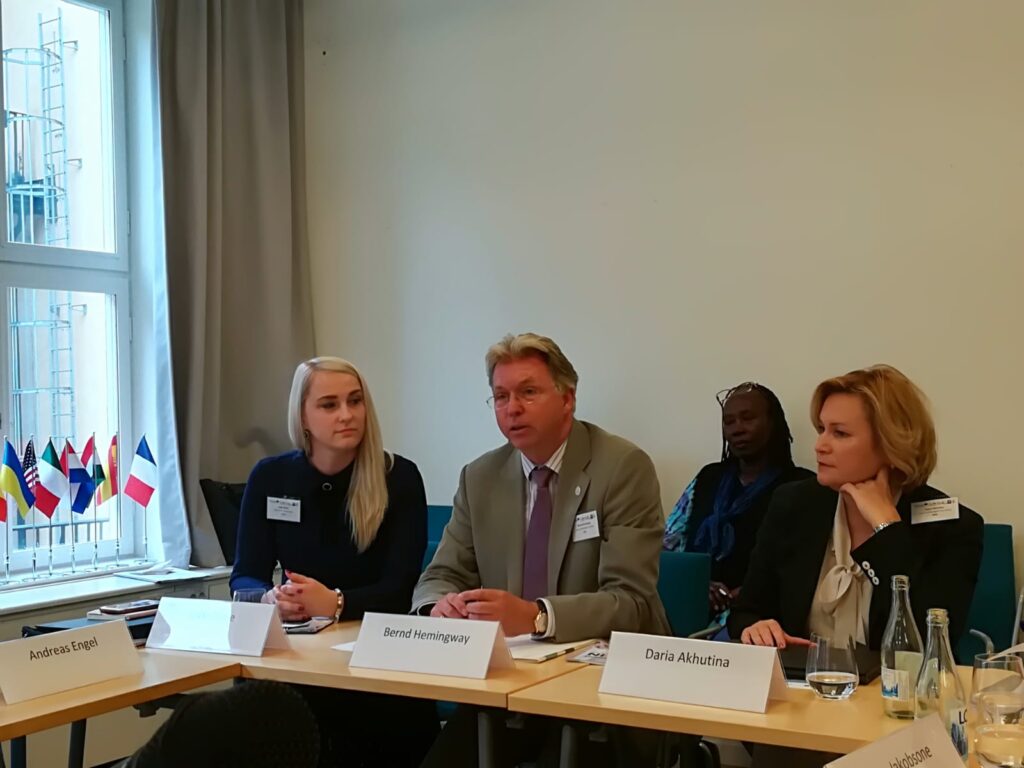The project “BSR SMART LIFE” was closed on August this year organizing seminar “A labor market for all using resources of longer lives”. It was held in Stockholm and gathered together important players in the field coming from different countries of Baltic Sea Region.
The focus of the seminar was on further cooperation in lifelong learning and adult education in the context of employment and labor market development in the Baltic Sea countries. As it is already known, “BSR SMART LIFE” is a new emerging flagship initiative under the EU Strategy for the Baltic Sea Region (EUSBSR) what was initiated by Vidzeme Planning region in 2016. Important stakeholders from different countries gathered together and by sharing their experiences and knowledge agreed on basic principles to expand the concept of life-long learning in Baltic Sea Region countries.
During the seminar in Stockholm, Ms. Lelde Ābele and Ms. Anita Jākobsone (Vidzeme Planning Region, Latvia) presented the current situation and trends in lifelong learning in the Baltic Sea Region.
Attention was paid to the comparative analysis carried out within the framework of the project on the situation in lifelong learning and adult education in Denmark, Estonia, Lithuania, Latvia, Poland, Finland, Germany, and Sweden.
The study indicates that the future investments of the Baltic States in lifelong learning should be closely linked to the problem of an aging population and its longer employment, as well as youth unemployment and its integration into the labor market. Adult education offers in all countries only partly correspond to the competencies required in the labor market and the requirements for smart specialization in the economy. To increase the efficiency of adult education, it is necessary to improve the quality of individual career and educational consultations and support the development of individual training plans in the context of human resource development in enterprises.
This was also highlighted by Andreas Edel, Executive Secretary of the Max Planck Institute for Demographic Research, presentation – “Aging Labor, Social Cohesion and Balanced Development.” He emphasized that lifelong learning, including digital literacy skills, has an increasing role in maintaining work capacity and quality of life at the age of 60+. Increasing the pension threshold in all the Baltic States is an increasing need determined by the shortage of labor force, which in countries such as Latvia, Lithuania, Estonia and Poland also contribute to the migration of labor force to other countries.
Anders Bergström, Coordinator of the EUSBSR Policy Area Education, summing up the discussion in the working groups, pointed out that the transfer of knowledge and skills among working generations and the development of employment patterns (part-time employment, self-employment, restarts of retirement in business) are only some of the tools to increase the older generation’ s longer employment. Others must be found.
To continue the ongoing work in the field of lifelong learning, the Vidzeme Planning Region will develop a new international project application. The project will intend to promote the use of adult learning opportunities in the development of human resources in small and medium-sized enterprises, including the assessment of all kinds of obstacles to the development of knowledge, skills, and attitudes for their employees and employers. The project is planned to be implemented in Latvia in cooperation with interested institutions, including the Ministry of Education and Science of the Republic of Latvia, municipalities, higher education institutions, employer organizations and trade unions.
More information: Lelde Ābele, project manager in Vidzeme Planning Region, Latvia, lelde.abele@vidzeme.lv, +371 29266757.
